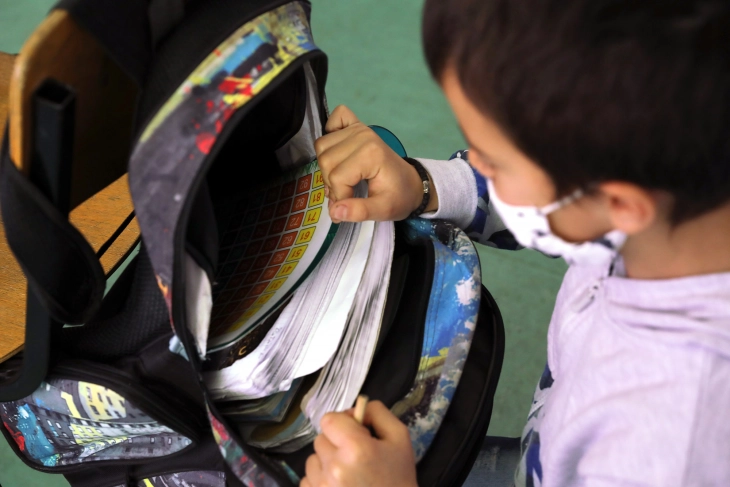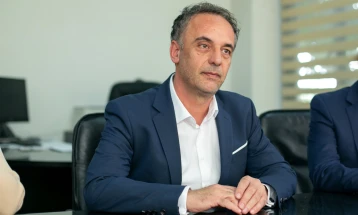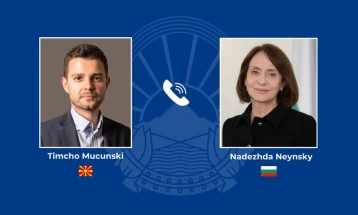UNICEF raises alarms on extended disruptions to learning and the negative impact on children’s wellbeing and productivity

Skopje, 27 April 2022 (MIA) - UNICEF has expressed concern about the prolonged disruptions to learning and is calling for measures to ensure primary and secondary school children are given opportunities to make up for learning losses immediately when they are back in school.
Learning loss must be recovered to avoid long-term damage to children’s wellbeing and productivity, UNICEF’s office in North Macedonia said Wednesday in a statement.
“For years, North Macedonia has been facing a learning crisis with more than half of all fifteen-year-olds in the country failing to meet basic proficiency levels in reading and maths. Furthermore, no programmes were introduced to recover from disruptions to learning experienced during COVID-19 school closures and the shift to distance learning,” said the statement.
This school year, UNICEF added, children already missed out on two weeks of schooling with the delayed start of the school year. Now with the prolonged teachers strike entering a third and possibly fourth week, it is likely that children will miss out on up to 6 weeks of no learning during this school year – all at a time when they should have been making up for learning losses experienced during COVID-19.
“Now more than ever we need to establish measures to make up for learning loses and accelerate education reform intended to address the pre-COVID19 learning crisis. The economic cost of lost learning will impact lifetime earnings among today’s generation of school children if corrective action is not urgently taken. These losses not only have a negative impact on children today, but they will also impact children’s life outcomes and will have an impact on future economic development,” said the statement.
According to UNICEF, it will be is critical that once children are back in schools, teacher assess students’ learning levels and provide targeted instruction tailored to a child’s learning level. Measure to extending schools’ hours of instruction, catch-up classes, adjusting instruction to support the learning needs of children and focus on important foundational skills, should be considered. Student in their last year of secondary education will need extra support so that they can achieve learning outcomes and do not have obstacles for enrolling in further education.
“UNICEF is calling on all stakeholders involved in the ongoing negotiations of education workers’ salaries to ensure the best interests of children takes precedence, to acknowledge the alarm on the learning crisis in education and find mutual solutions to prevent a lost generation,” it stressed.







